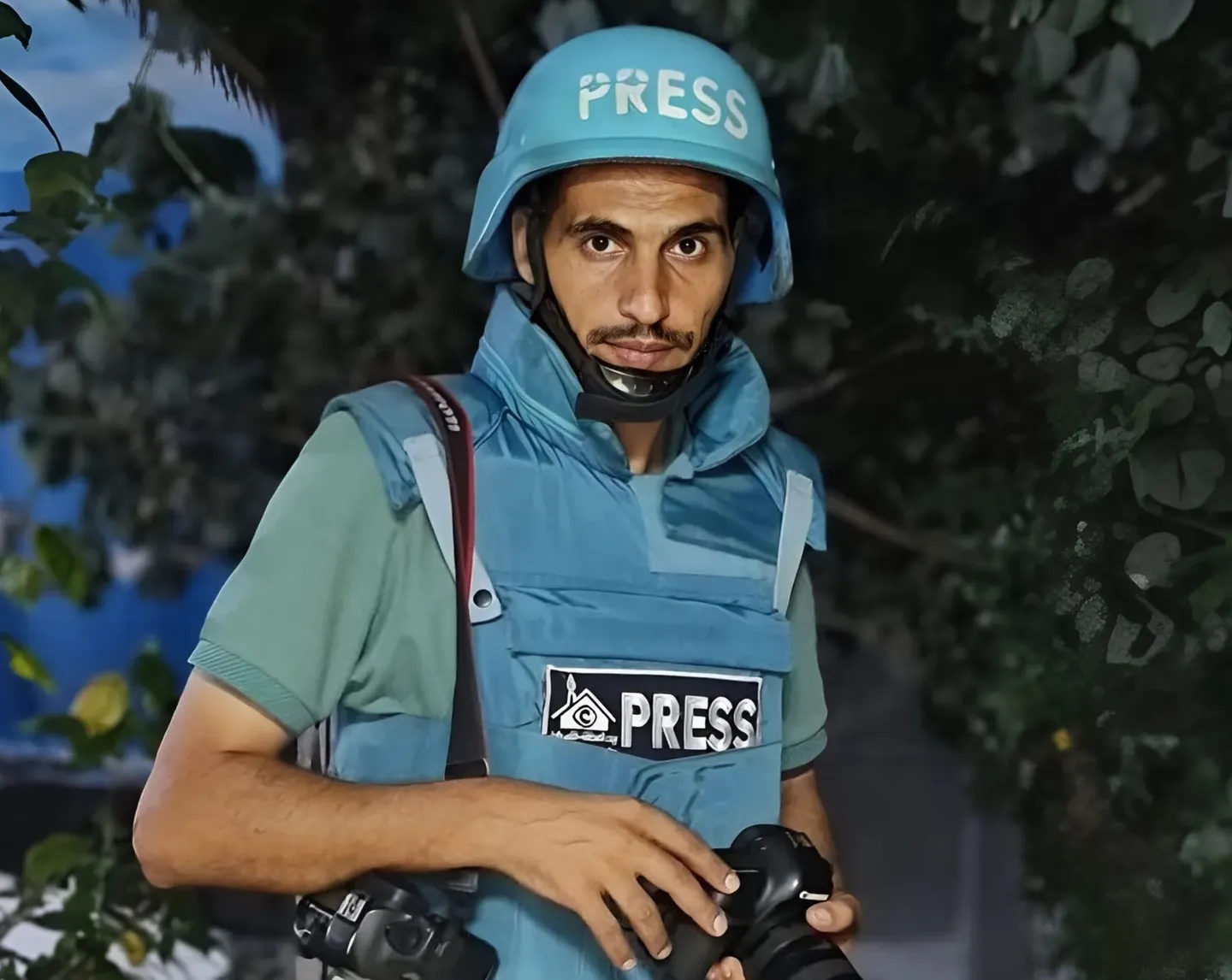The Israeli army killed a Palestinian journalist receiving treatment at a Khan Younis hospital in southern Gaza on Tuesday morning.
Journalist Hassan Eslayeh was killed in an Israeli air strike at the Nasser Medical Complex, the Gaza-based Government Media Office confirmed.
Eslayeh, head of the Alam24 news outlet based out of Gaza, was being treated at the hospital for his wounds caused by an Israeli strike on April 7, the Gaza civil defence spokesman Mahmud Bassal told AFP news agency.
The Israeli military claimed the April strike had targeted Eslayeh, alleging he operated for Hamas "under the guise of a journalist", a claim he vehemently denied.
This is not the first time Israel has labelled Palestinian civil society workers — journalists, paramedics, aid workers — as members of Hamas or other armed groups in Gaza.
Last month, Israel assassinated Al Jazeera Mubasher correspondent and Drop Site News contributor Hossam Shabat, alleging he was a Hamas operative. Shortly after, the Israeli army killed 15 paramedics and rescue workers in Rafah, falsely claiming that “at least 6” of them were Hamas fighters.
TRT Arabi journalist Sami Shehadeh was also targeted by Israeli shelling while reporting in the Nuseirat refugee camp in central Gaza, resulting in the loss of his leg.
In an article published by Mondoweiss, Tareq S. Hajjaj, a colleague and friend of Hassan Eslayeh, quoted Eslayeh as saying he did not belong to any party.
“The army accused me of fighting in Khan Younis on October 7, but I was covering the events in Rafah,” Hassan said, referring to the moment the Gaza border fence was torn down on October 7, 2023.
“I do not belong to any party. I don’t do anything in Gaza other than my well-known journalistic work, which the entire world knows.”
Israeli newspapers amplified the army’s initial claims against Hassan, launching a smear campaign against him.
Several outlets published photos and video clips of Hassan documenting the events of October 7, Hajjaj said.
They also circulated a photo of him with former Hamas leader Yahya Sinwar.
“The photo of Hassan with Sinwar was taken at an event Hassan was covering. Snapping a photo with the leader of a Palestinian faction in Gaza is commonplace, and something that anyone would do. The non-credible nature of such Israeli claims — or any Israeli claim — should indicate that anything the Israeli army says must be treated with extreme skepticism,” Hajjaj wrote.
Eslayeh was a popular journalist in Gaza known for his frontline reporting. He shared real-time updates, photos, and videos documenting the impact of Israeli military actions on civilians in Gaza.
His content on Twitter and Instagram often highlighted the humanitarian crisis, including the destruction of infrastructure and civilian casualties.
On social media, Eslayeh had over a million followers across different platforms including Telegram, X, Facebook and Instagram.
Instagram has reportedly blocked Eslayeh’s main account during the ongoing genocidal war in Gaza, prompting him to use a backup account.
Late Monday, the Israeli army resumed its attacks on Gaza, following a temporary lull so the Palestinian group Hamas could release Israeli American soldier Edan Alexander, following an agreement between Hamas and the US administration.
The Committee to Protect Journalists condemned the strike that killed Eslayeh.
“It would not be difficult for the occupation to assassinate me again, especially with the increasing incitement I hear and see against me,” Hassan said as quoted in Mondoweiss.
“I am not fighting. I am working, and I bear responsibility for my profession.
“If the Israeli army kills me, the photos I took and the stories I told the world will live on. My name, my cause, and my voice will live on.”

.jpg?width=256&format=webp&quality=80)




.jpg?width=256&format=webp&quality=80)








